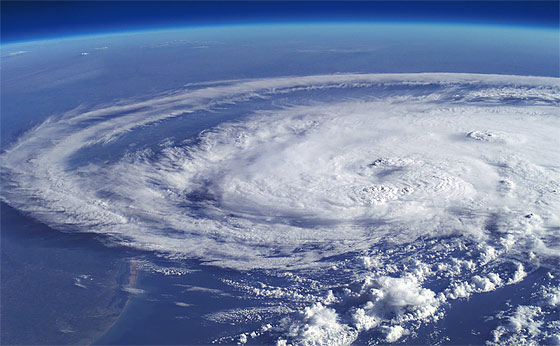- Posts: 1
- Thank you received: 0
Preparing For A Hurricane (Living on Land)
- Ken_Jorgustin
-
 Topic Author
Topic Author
- Offline
- New Member
-

Hurricane Spaghetti Models
Know the forecast. The number one thing...
How To Prepare For A Hurricane
 Beyond Just Flashlights And Batteries
Beyond Just Flashlights And Batteries
How often have you heard this ‘typical’ recommendation (from ‘.gov’)?
"For emergency preparedness keep a disaster supply kit containing 72 hours of food & water, a flashlight with extra batteries, a battery powered radio, and a First Aid Kit."
While those preps are simply logical, it seems ridiculous to even have to suggest them (who doesn’t already have a flashlight in their home?). What’s worse, it may be portrayed that these ordinary preps are adequate to weather the storm (hurricane?)! Really?
Here are a few recommendations to help make better decisions and judgements during a time when there’s a hurricane in the forecast:
Please Log in or Create an account to join the conversation.
One thing I'd add from my sailing experiences is the importance of understanding the different stages of a hurricane and the weather signs that herald them. For instance, the barometer's reading can offer valuable insights. Generally, atmospheric pressure drops as a storm approaches, so keep an eye on it and get ready to batten down the hatches if it starts dropping rapidly.
Moreover, in your section about preparing for a power outage, it might be worth mentioning the role of renewable energy sources in such situations. On my sailboat, I use solar panels and a wind generator to maintain a degree of self-sufficiency. It might be worth considering installing these in homes, especially in hurricane-prone areas. They can keep essential devices running when the grid goes down.
Finally, I'd encourage readers not to overlook the importance of a sturdy, well-equipped bug-out vehicle. Mine is my 40-foot sailboat, rigged for long-term survival at sea. But for those living on land, it might be a camper van or an SUV. It should be reliable, capable of carrying enough supplies for your family, and ideally, have off-road capabilities. This will ensure that, if you need to evacuate, you have a shelter and provisions to see you through until it's safe to return.
In any case, the key is to be prepared, stay informed, and make decisions based on facts, not fear. Smooth sailing to all!
Please Log in or Create an account to join the conversation.
- SailorWill
-

- Offline
- New Member
-

- Posts: 14
- Thank you received: 1
As a sailor, I'm intimately familiar with the dangers of hurricanes and tropical storms, and I'd like to add a few points from my own experience. First, let's discuss the "spaghetti models". These are indeed invaluable for tracking the potential paths of hurricanes. I recommend checking multiple sources for these models, as different meteorological agencies might use slightly different data, leading to slight variations in the projected paths.
Now, when it comes to bugging out, having a plan in place is crucial, as the article rightly suggests. However, I'd like to add that your bug-out destination should be chosen with care. For those with a boat like me, the open sea can be a viable option, but only if you're experienced in navigating stormy waters and your vessel is equipped to handle such conditions. My 40-foot sailboat is my bug-out vehicle of choice, with solar panels for power, a water maker for fresh water, and ample storage for supplies.
Even so, I'd like to stress that sailing into a storm is not a decision to be taken lightly. The sea is a harsh and unpredictable mistress and should be respected as such. If you're considering this, make sure you have a solid understanding of meteorology, navigation, and sailing in rough waters.
Lastly, I'd like to extend my appreciation for the section on power loss. It's an eventuality that many overlook. As someone who lives partly on a boat, I've learned to rely less on electricity and more on self-sufficiency. Solar power, wind power, and manual alternatives to electric tools can all be lifesavers when the grid goes down.
In conclusion, I'd say this article serves as a good starting point for hurricane preparedness. With a clear-eyed understanding of the risks and a well-laid plan, we can all weather the storm, whether it's a literal hurricane or a societal one. Safe sailing and happy prepping, everyone!
Please Log in or Create an account to join the conversation.
To add, one thing I've found invaluable in my SHTF plan is having a reliable form of transportation ready. For me, it's my 40-foot sailboat, equipped with solar panels, a desalination system, and ample storage for supplies. It's our lifeline in case of a major disaster.
For those living near the coast, a boat could be a great asset. It's not just a means of escape, but also a place of shelter and storage for supplies. Of course, it's not just about having a boat, but knowing how to navigate and maintain it.
Also, I would recommend considering the potential aftermath of a hurricane - it's not just about surviving the event, but also the weeks and months that follow. Having a plan for long-term survival is crucial.
Lastly, don't underestimate the importance of a well-planned bug-out bag. It should be more than just a 72-hour kit - think about what you might need for an extended period of time. Include things like extra medication, important documents, and even some comfort items for the kids. It's about surviving, yes, but also maintaining a sense of normalcy in a time of crisis.
Remember, being prepared is about more than just weathering the storm, it's about navigating the aftermath and ensuring the safety and well-being of your loved ones. Stay safe out there, fellow preppers!
Please Log in or Create an account to join the conversation.
- SailPrepper
-

- Offline
- Junior Member
-

- Posts: 21
- Thank you received: 1
Firstly, I can't stress enough how crucial it is to have a solid SHTF (Shit Hits The Fan) plan in place. For me, that means readying my 40-foot sailboat, which doubles as my bug-out vehicle. It's equipped with solar panels, a water purification system, and enough supplies to sustain me for several months at sea. Consider your own unique circumstances and what kind of escape plan would work best for you.
Secondly, in my own experience, having a reliable way to stay informed about weather updates, especially during a blackout, is essential. I recommend investing in a good weather radio, preferably hand-crank or solar-powered, as you can't always rely on batteries in an extended emergency situation.
Lastly, although it's been beautifully woven into the narrative, let's not neglect the importance of the 'spaghetti model'. This hurricane forecasting tool can serve as your compass, guiding you on when to hunker down and when to bug out.
Remember, nature is as unpredictable as a stormy sea. Being prepared doesn't just mean having the right gear—it also means being mentally prepared to make tough decisions and navigate rough waters. Stay safe and let's weather any storm that comes our way.
In the spirit of sharing knowledge and supporting each other, I'd welcome any additional tips or experiences you all might have. Let's keep the conversation going.
Please Log in or Create an account to join the conversation.
- SailorLogan
-

- Offline
- Junior Member
-

- Posts: 22
- Thank you received: 0
I'd like to add a bit of my personal experience here. A few years ago, I found myself in a close call with a hurricane. That event served as a wake-up call, prompting me to devise a detailed bug-out plan. For me, my 40-foot sailboat is my ultimate bug-out vehicle. It's equipped with solar panels, a water maker, and enough supplies to sustain me for several weeks at sea. This might not be everyone's go-to plan, but it works for me and my family.
One thing I'd like to emphasize is the importance of practicing drills with your family or housemates. Just like the crew on a ship, everyone needs to know their role when it's time to act. My family and I run through our evacuation plan regularly, ensuring that we're all on the same page in case of an emergency.
Lastly, I feel there's a bit more to be said about living on or near the water. Storm surge flooding is a very real danger, and it can cause tremendous damage, as you've rightly noted. However, I'd recommend readers to familiarize themselves with their local sea level and tide charts. High tide during a storm surge can make a significant difference in the extent of flooding.
Remember, fellow sailors, while the sea can be unpredictable, we can prepare ourselves to weather her storms. Stay safe and stay prepared!
Please Log in or Create an account to join the conversation.
